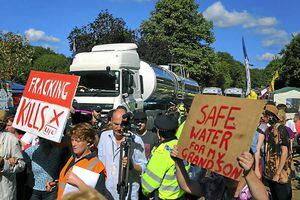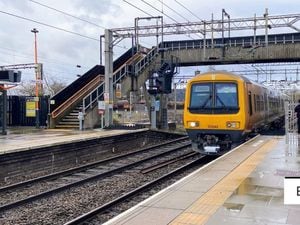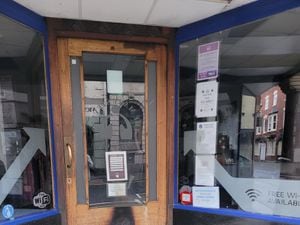Fracking map reveals potential drilling sites in West Midlands
Fracking could be carried out in the Midlands after it emerged the Black Country and Staffordshire were identified as possible drilling sites in a Government commissioned report.

A new map shows the areas are among vast stretches of the United Kingdom identified for further exploration.
Drilling licences could be issued as the Government accelerates towards large-scale shale gas production in rocks beneath the UK by the 2020s in a move which it claims could help bring down energy bills and create thousands of jobs.
Environmental activists are bitterly opposed to the technique though, which opponents say can increase climate change, cause small earthquakes and pollute water supplies.
Currently licences only exist in Staffordshire for conventional exploration and extraction of coal methane – a natural gas extracted from coal beds – but the Government made it clear this week it sees fracking and shale gas as way forward in solving the UK's future energy needs.
While that could bring new jobs, energy security and a major economic boost to the country, the new report has also warned of traffic congestion, noise and poorer air quality.
While large scale shale gas drilling and production would have no major impact on a local level, the report from consultants Amec predicts 'negative effects at a local level in terms of waste and climate change'.

That would mean bad news for people living near drill sites because of increasing greenhouse gas emissions from work on the sites and from the heavy traffic passing their doors every day.
Amec's report said there could be between 14 and 51 vehicle movements to a fracking site each day over a 32 to 145-week period.
There is also concern about waste caused by the flowback of the water used in the hydraulic fracturing for shale gas. The controversial mining method uses water and chemicals to break up rocks deep underground to get at the gas.
Annual water use of shale gas exploration could be up to nine million cubic metres, around 18 per cent of mains water currently supplied to energy, water and waste firms, said the report.
One the plus side, Amec says shale gas production in the 2020s could be three times what the country currently uses, with 16,000 to 32,000 jobs created. They could then receive a further one per cent of the revenue of each well over its lifetime. Almost £1 billion could be paid out across the UK under a 'high activity' scenario.
Amec's Strategic Environmental Assessment (SEA) report was carried out in preparation for the launch of the next round of licenses being made available for onshore oil and gas exploration and production.
A consultation will now run until March to consider the findings of the SEA and how this affects shale gas production in the UK. Wolverhampton, Walsall, Dudley, Sandwell and Staffordshire all sit above a potential oil and gas area known as the Worcester Basin, forming one of the areas in which companies will be invited to bid for licences to explore next summer.
Energy Minister Michael Fallon said: "There could be large amounts of shale gas available in the UK, but we won't know for sure the scale of this prize until further exploration takes place."
Mr Fallon forecast a high degree of interest from companies, with between 50 and 150 licences issued. One of the companies likely to head the charge is Lichfield-based Cuadrilla Resources. It has hit the headlines in recent times with the protests surrounding its exploration work near the village of Balcombe in West Sussex.
Ministers have also published a 'regulatory roadmap' for shale gas setting out permits developers need before drilling, saying it clarified the 'robust processes' that operators need to comply with to get a licence.
But fracking companies will be able to avoid strict planning regulations when they set about drilling for shale gas. Communities minister Nick Boles has said it would be impractical for on-shore gas companies to personally notify every household and business which sit above a shale gas site. Instead, on-shore gas companies would only be expected to take out an advert in a local newspaper to inform residents about their plans to start fracking and place notices in local parishes.
Meanwhile, environmental campaigners remain bitterly opposed to shale gas. Friends of the Earth energy campaigner Tony Bosworth said:"These plans cast a dark shadow over many communities across Britain.
"The Government admits shale gas and coal bed methane development could have significant impact on local people and the environment, while experts say they won't bring down energy bills."





